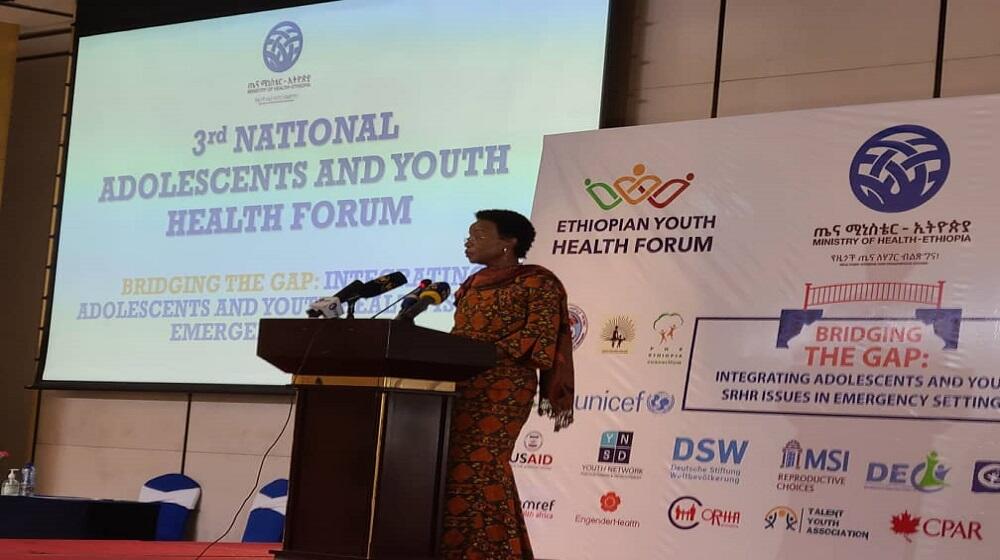UNFPA together with the Ministry of Health of Ethiopia and other partners organized the Third National Adolescent and Youth Health Forum.
The forum was held for two days between October 6 and 7 under the theme “Multi-sectoral response for internally displaced young people” which aimed at enhancing the collaboration and coordination among stakeholders in the effort to address the needs of young people in humanitarian situations.
In a televised opening remarks she delivered to the forum, H.E. Dr. Lia Tadesse, Minister of Health, appreciated the importance of the forum and expressed the urgency for coordinated efforts to address the needs of vulnerable young people, especially those living in humanitarian situations.
The National Adolescent and Youth Health Forum which was held for the third time has become one of the most institutionalized avenues for youth participation in the national health development processes of the country. It has allowed youth-led and youth-focused organizations and networks, youth advocates, and various partners and stakeholders to engage with young people, and to explore ways and means of promoting better health outcomes for adolescents and youth in the country.
Speaking on the occasion, Ms Suzanne Mandong, UNFPA Representative a.i. noted that UNFPA is committedly supporting government policies and strategies focusing on youth empowerment as well as provision of comprehensive, friendly and accessible SRH services. She underscored the importance of youth participation and engagement not only in development context but also in humanitarian response and peace building initiatives.
UNFPA took part in one of the panels conducted at the forum under the topic “Responding to the needs of young people in IDP settings.”
The forum came to a close setting forth the actions needed to strengthen coordination and collaboration of stakeholders in their effort at addressing the needs of young people in humanitarian settings.
The third National Adolescent and Youth Health Forum was attended by senior government officials, UN agencies, development partners, civil society organizations and young people.


